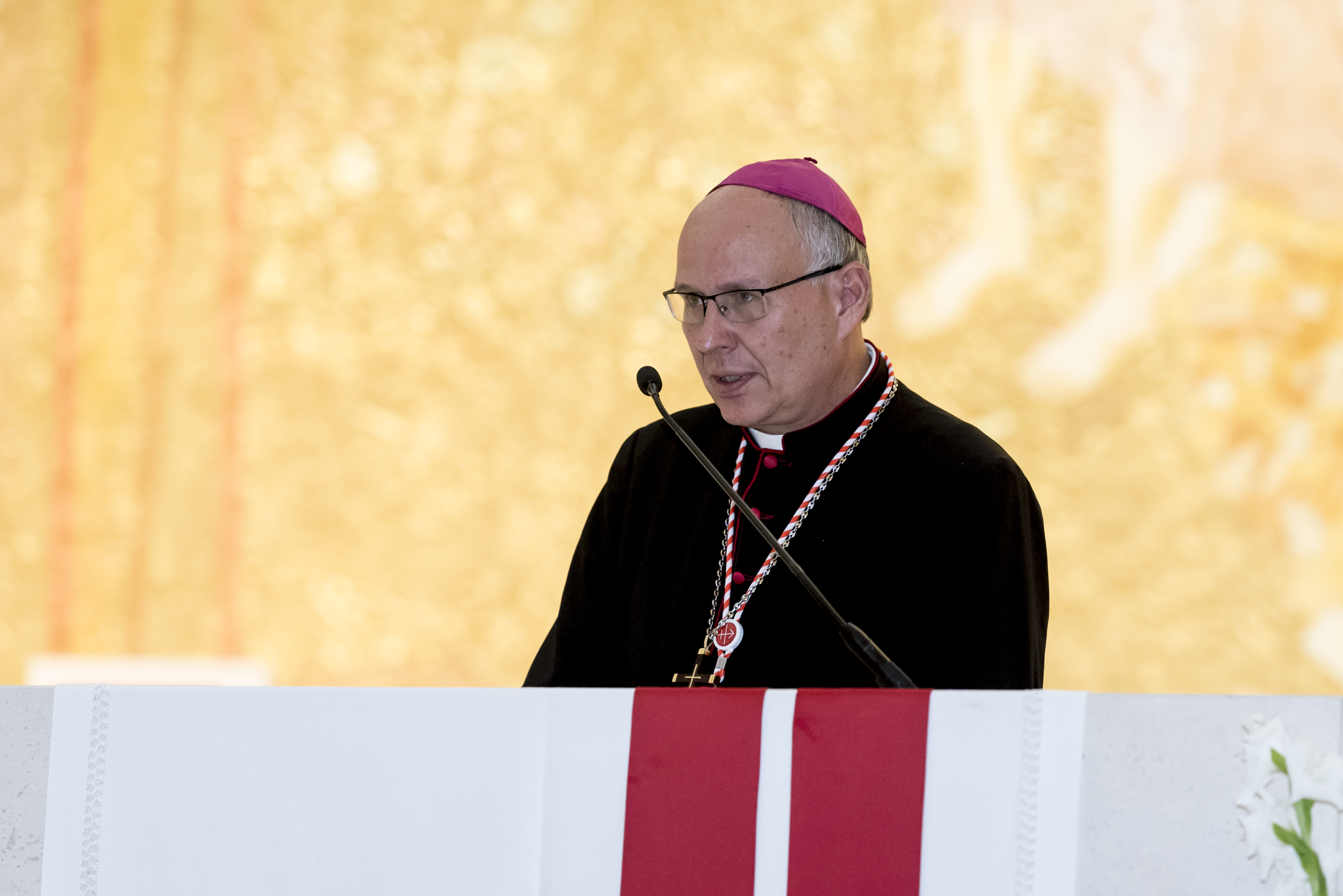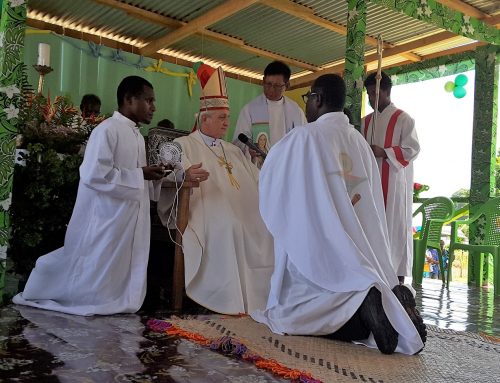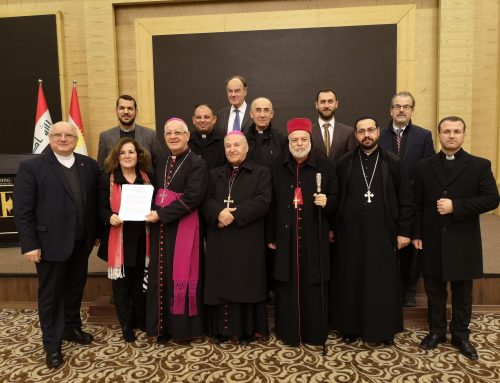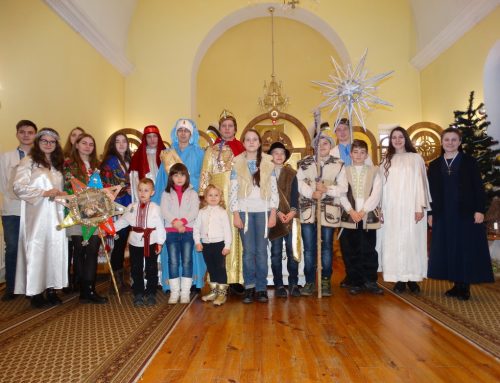Holy Mass for Monday of the Second Week of Advent
(Is 35:1-10; Ps 84; Lk 5:17-26)
Königstein, 10.12.2018
Homily by Cardinal Mauro Piacenza, President
Today’s readings present salvation to us as a meeting: “Look, your God is coming,… he is coming to save you”, says Isaiah, and so we too must go out to meet Him, on the path that He himself prepares for us: “And through it will run a highway undefiled which shall be called the Sacred Way; the unclean shall not travel by it, nor fools stray along it.” And the psalm also speaks of an encounter: “Mercy and faithfulness have met; justice and peace have embraced.”
But in order to be able to go and meet someone, we have to be able to walk. That is why the readings insist on the healing of those who cannot walk: “Then the lame shall leap like a deer…”. “Courage! Do not be afraid.”
Truly, when we have the desire to go and meet someone dear to us, if we cannot walk we find ourselves in a state of great anguish! But the Gospel offers us a lesson in profound optimism, in that it is precisely our deficiencies that make it so necessary for us to seek the Lord; and so this is a great blessing. If the man in the Gospel had not been a paralytic, then probably he would never have encountered Christ. But instead, driven by his own poverty, he did make the effort, did force the situation, did overcome the difficulties, because he could not imagine any other solution than the intervention of the Lord. And Jesus anticipates his request and has already answered it: “My friend, your sins are forgiven.”
We need to go to meet the Lord, but how can we do this if we cannot walk, if we are spiritually paralysed. We need to do like the paralytic in the Gospel – to find a remedy for our paralysis. And this remedy is found only in faith in the all-powerful Word of the Lord. Only the Son of man, Jesus, has the power to forgive sins, to grant the power to walk to one who is inwardly prevented from doing so by his infirmity.
Only with Jesus can we go out to meet Him. And this is precisely what our attitude should be during Advent. We know well that by ourselves we will not succeed in going to meet the Lord; it is only with Him that we can go out to meet Him. It is He, who by His word and by His love gives us the strength to walk and so we, opening ourselves to His gift, go to meet Him, offering Him our actions and uniting ourselves with Him in the walking. This then is the source of our joy during the season of Advent: walking together with the Lord towards a clearer, more explicit encounter with the Lord himself.
What a wonderful occasion is this season of Advent! Reality is intertwined with poetry, or rather, poetry itself is reality! And for this reason also, I am always happy to be able to share a moment of Advent inspiration here with you all.
In the Gospel reading we have just listened to, we have heard how the paralytic, once cured by Jesus, stands up in sight of everyone, picks up the stretcher on which he had been lying, and sets off home praising God.
I would like to look a little more closely at this expression, “praising God”. And they were all astounded, “and praised God”. The forgiveness of sins is the great motive for their praise of the Lord.
God is coming, he takes a personal interest in us. He is interested in the paralytic, just as he is interested in all those who are paralysed by sin. Advent calls us all to be aware of this truth and to act accordingly. It rings out like a salutary appeal, repeated every day, every week, every month, every year, every century: Wake up! Remember that God is coming! Not yesterday, not tomorrow, but today, right now! The one true God, “the God of Abraham, of Isaac and of Jacob” is not a God who simply resides in the heavens, uninterested in us. No, He desires to meet us and visit us, He wishes to come, to dwell in the midst of us, to remain among us. His coming is driven by His desire to free us from evil and from death, from everything that hinders our true happiness. God is coming to save us!
God is coming to save us from the crowd, from those who have witnessed the miracle of the healing of the paralytic, and still more, the forgiveness of his sins – “my friend your sins are forgiven” – there rises up praise to God in their general astonishment and they exclaim, filled with awe, “We have seen strange things today”.
But we too, in our time have witnessed “strange things”, have seen marvels, just like the crowd back then. For example, sacramental confession, the Holy Sacrifice of the Mass and the Real Presence of Jesus in our tabernacles; for example, being immersed through our membership of the Church in the reality of the Communion of the Saints. We too – armed with a pure and solid doctrinal grounding and animated by a fervent sacramental life – we too, like the crowd who had come from Galilee, Judaea and Jerusalem, can see “strange things”. Advent invites us and stimulates us to contemplate the presence of the Lord. This certainty of His presence should help us to see the world with new eyes. Advent impels us to understand the meaning of time and of history as the “kairos”, the favourable time for our salvation. Jesus has illustrated this mysterious reality in many different parables. We recall the parable of the servants told to await the return of their master; we recall the virgins awaiting the bridegroom; we recall the parable of the sowing and the reaping. Our lives are a time of constant awaiting: as children, we want to be grown-up, as adults we strive for fulfilment and success, as we grow older we look forward to a well-earned rest. But the time will come when we find that we have hoped for too little if, beyond our professional career and social position, we find we have nothing left to hope for. Hope marks out the path of mankind, but for the Christian this hope is animated by a sure certainty – the Lord is present in the unfolding of our lives, He accompanies us, and one day He will even dry our tears. One day, not too far away, everything will find its fulfilment in the Kingdom of God, the Kingdom of justice and peace.
And so Advent is a time of the presence, and at the same time of the awaiting, of eternity. For this very reason it is in a special way a time of joy, an interior joy that no suffering can erase. Joy in the fact that God has become a little Child. Our model and our reason for this intimate joy is the Blessed Virgin Mary, through whom we have been given the Child Jesus. As the faithful disciple of her Son, who already dwells in that New World towards which the Church so laboriously journeys in time – may she obtain for us the grace to live this liturgical season in a spirit of wakeful and generous awaiting.





